The entertainment industry is reeling as the Writers Guild of America (WGA) takes center stage in a battle for fair treatment and creative rights. With proposals encompassing everything from artificial intelligence regulations to alternative pay structures, the strike has entered its third week, causing a whirlwind of delays and disruptions in TV shows and movies.
The Effects on the Industry
The impact of the strike on TV shows and movies is evident, with major productions experiencing delays and disruptions. The absence of writers in writers’ rooms has halted progress, while picket lines have resulted in the suspension of filming for shows like “Evil,” “Loot,” and the highly anticipated “Stranger Things” on Netflix.
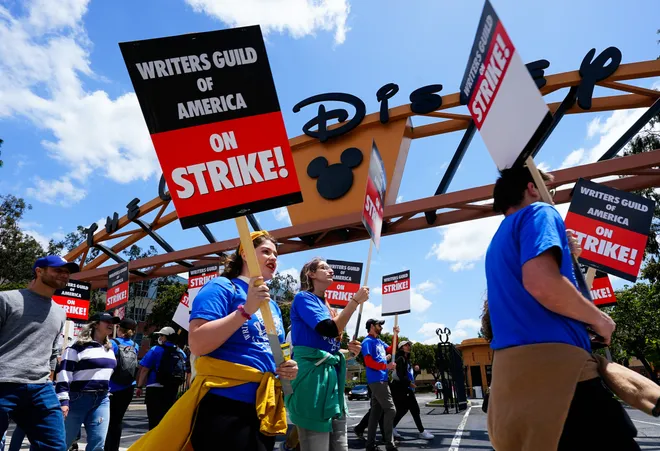
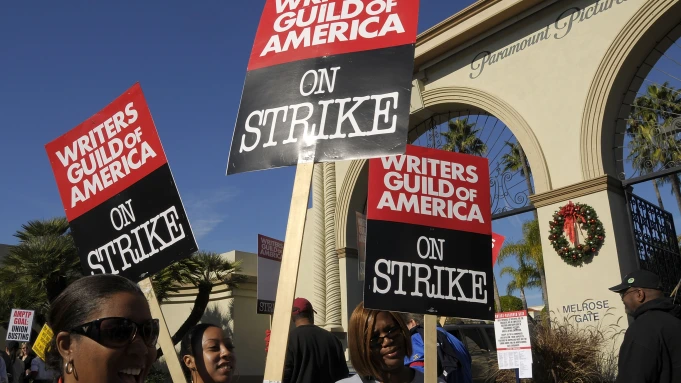
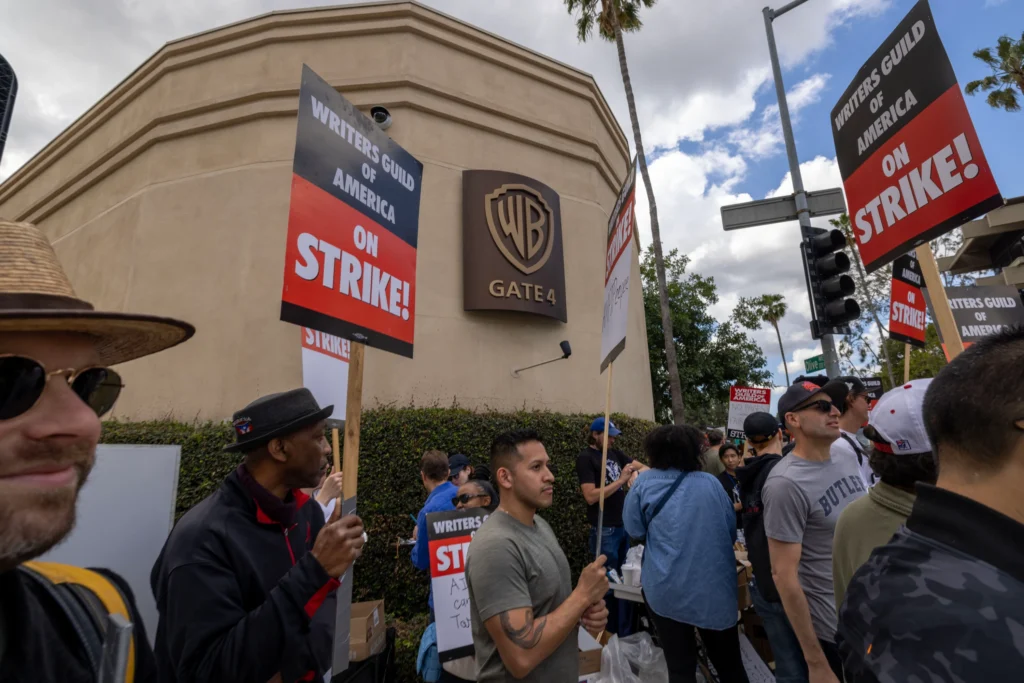
Late-night talk shows, which heavily rely on the wit and creativity of writers, have also gone off the air, leaving fans without their regular dose of comedic commentary. Notable personalities like Seth Meyers have voiced their support for the strike, emphasizing the reasonable demands of the writers and the essential role played by the WGA in protecting their interests.
In the movie industry, pre-production for Marvel Studios’ “Blade” has been put on hold, underscoring the far-reaching implications of the strike beyond the realm of television. The strike’s impact on the industry is multifaceted, affecting various stakeholders and disrupting the usual flow of content creation.
Union VS Studio – Who Will Win?
As the strike persists, the WGA remains resolute in its pursuit of a fair contract that addresses the changing landscape of the entertainment industry. The union’s proposals, estimated to cost studios $429 million per year, encompass crucial aspects such as artificial intelligence regulations, alternative pay structures to compensate for the elimination of residuals, preservation of the writers’ room, minimum pay for streaming services, and ensuring a guaranteed number of on-the-week jobs for writers.
In contrast, the studios’ counterproposals amount to $86 million, highlighting a significant gap between the two sides. Negotiations are ongoing, and it remains to be seen when a mutually agreeable resolution will be reached.
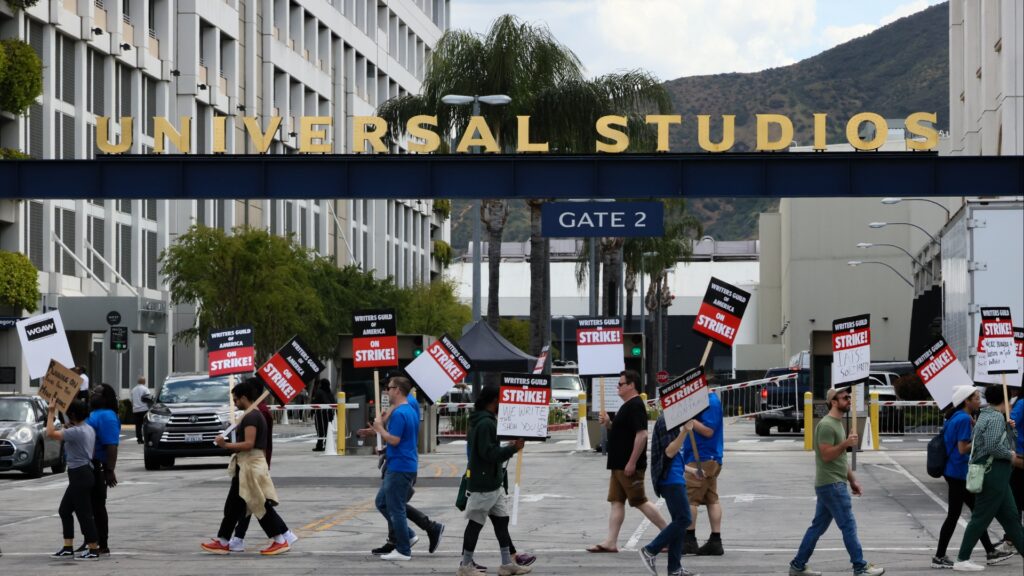
While the duration of the strike remains uncertain, looking back at previous WGA strikes provides a glimpse into potential timelines. The 2007-2008 strike lasted over three months, resulting in significant shifts within the industry and the rise of reality TV. The 1988 strike, which focused on residuals, lasted 153 days, highlighting the determination of writers to fight for their rights and the significant impact of such actions on the entertainment landscape.
As the strike continues, Hollywood stars and industry professionals express their support for the writers’ cause. Through their actions and public statements, they emphasize the vital role of writers in shaping the stories that captivate audiences worldwide. Their unity sends a powerful message that the creative process hinges on the contributions of writers, and a fair and equitable agreement must be reached to ensure the industry’s continued success.
A Resolute Determination
As the Writers Guild of America strike rages on, its reverberations echo through the corridors of the television and movie industries. The consequences are palpable: halted productions, silenced late-night talk shows, and an unsettling void in the once bustling writers’ rooms. Yet, amidst the uncertainty of its duration, a resolute determination pulses within the hearts of the WGA and the unwavering support from Hollywood stars.
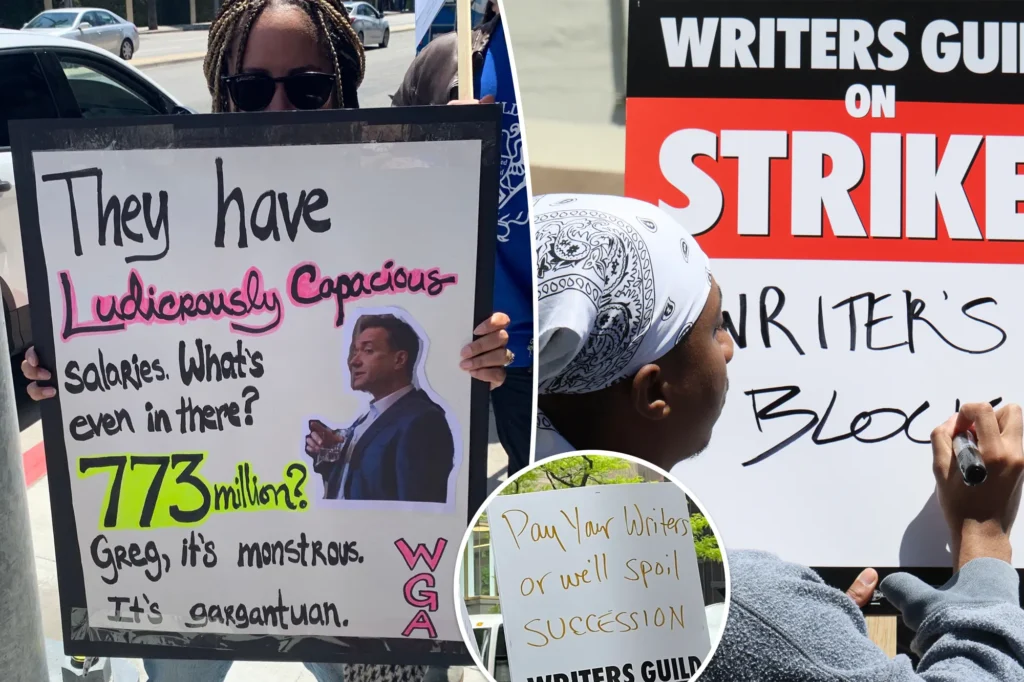
This strike is more than a temporary disruption; it is a rallying cry to address the ever-evolving challenges faced by writers in the digital age. It beckons the industry to recognize the indispensable role they play in shaping our on-screen experiences. From crafting captivating narratives to breathing life into unforgettable characters, writers are the architects of our imaginations.
The resolution of this strike holds the power to reshape the future of entertainment. It calls for an industry that values and protects the rights of its creative forces, ushering in a new era of collaboration and fairness. It serves as a poignant reminder that without the profound artistry of writers, our screens would be mere canvases waiting for inspiration.

1 thought on “Lights, Camera, Strike!”
Great insight. Thanks for sharing.